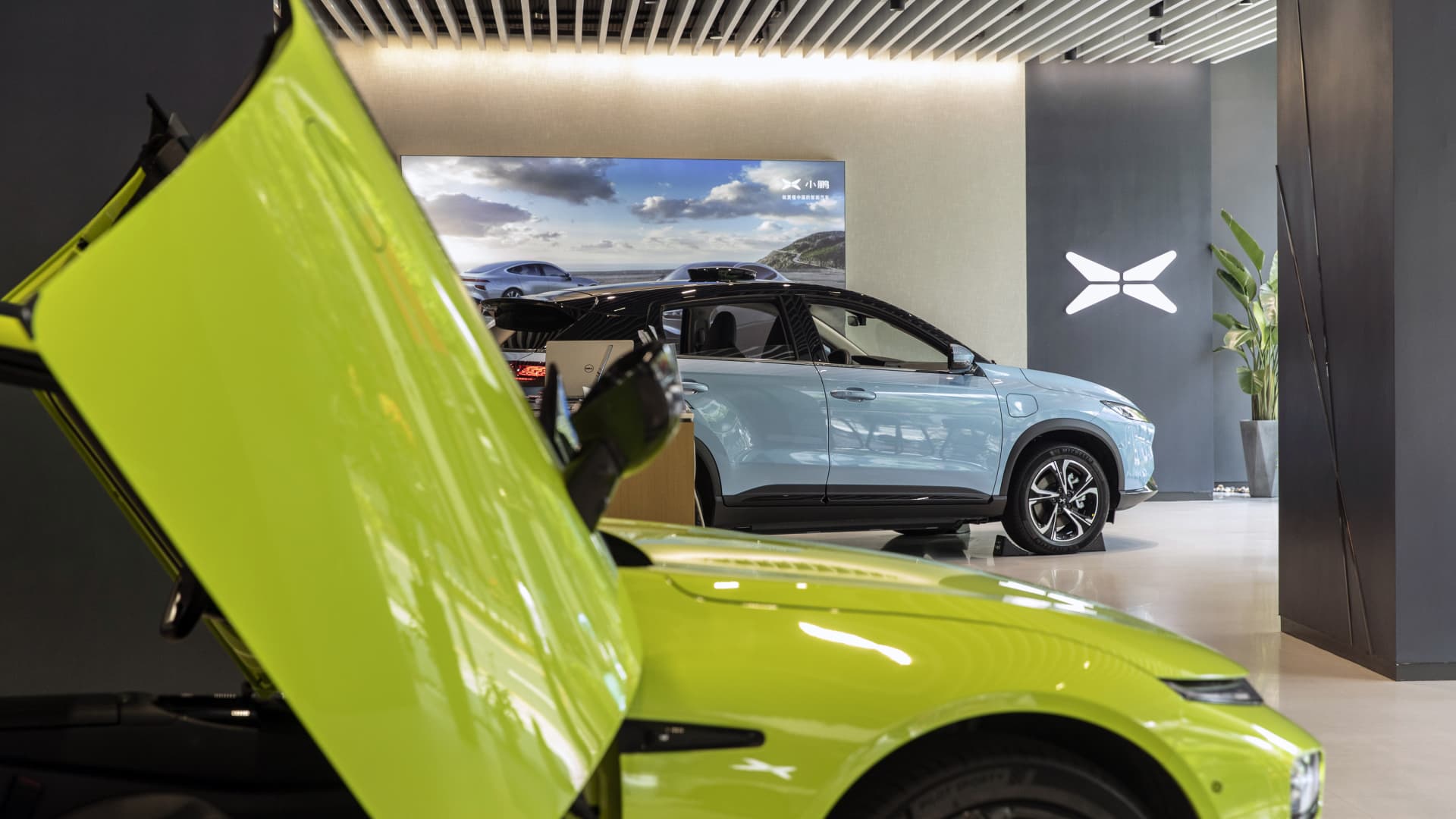Chinese e-commerce giant Alibaba teams up with Tesla rival Xpeng on tech for driverless cars
For Xpeng, the move marks its ambitions to pull ahead in China's fiercely competitive electric vehicle market and attempt to challenge giants Tesla and BYD.

XPeng is still focused in boosting the sales of its electric cars. But it has been focusing on building out future businesses in flying cars and robotics.
Qilai Shen | Bloomberg | Getty Images
Chinese e-commerce giant Alibaba and electric vehicle startup Xpeng are opening a computing center to train software for driverless cars, the two companies said Tuesday.
Autonomous driving systems require huge amounts of data to be processed in order to train algorithms.
Xpeng claims that the new computing center will reduce the training time for its core autonomous driving model from seven days to within an hour.
The Guangzhou-headquartered company will use technology from Alibaba's cloud division for its computing needs. The computing center called Fuyao will be located in the region of Inner Mongolia in northern China.
Alibaba, an investor in Xpeng, has been trying to bolster its cloud computing division amid a slowdown in its core commerce business. The move also highlights how China's technology giants are trying to jump into the fast-growing electric vehicle space.
Tencent, for example, is trying to position itself as the go-to technology company for foreign automakers to use for various automotive technology-related services when they enter the Chinese market.
For Xpeng, the move marks its ambitions to pull ahead in the fiercely competitive electric vehicle market in China and attempt to challenge giants Tesla and Warren Buffett-backed BYD. China's electric vehicle startups from Nio to Xpeng see autonomous driving features as a way to do that.
Xpeng has an advanced driver-assistance system, or ADAS, called XPILOT installed in some of its vehicles. Users who opt for this feature can get some autonomous features such as automatic lane switching.
Last year, Xpeng launched the City NGP, which stands for navigation guided pilot. The system allows Xpeng's cars to change lanes, speed up or slow down, or overtake cars and enter and exit highways. Previously the system was designed just for highways, but it has now been designed for cities too.
Xpeng has tried to position itself more like a technology company rather than an automaker and has been investing in areas such as robotics and flying passenger drones.
Chinese regulators have, for the most part, been quite encouraging of autonomous driving technology. Various cities across the country have allowed domestic driverless car firms to test and even launch robotaxi services too.

 FrankLin
FrankLin 























![Are You Still Optimizing for Rankings? AI Search May Not Care. [Webinar] via @sejournal, @hethr_campbell](https://www.searchenginejournal.com/wp-content/uploads/2025/06/1-1-307.png)








